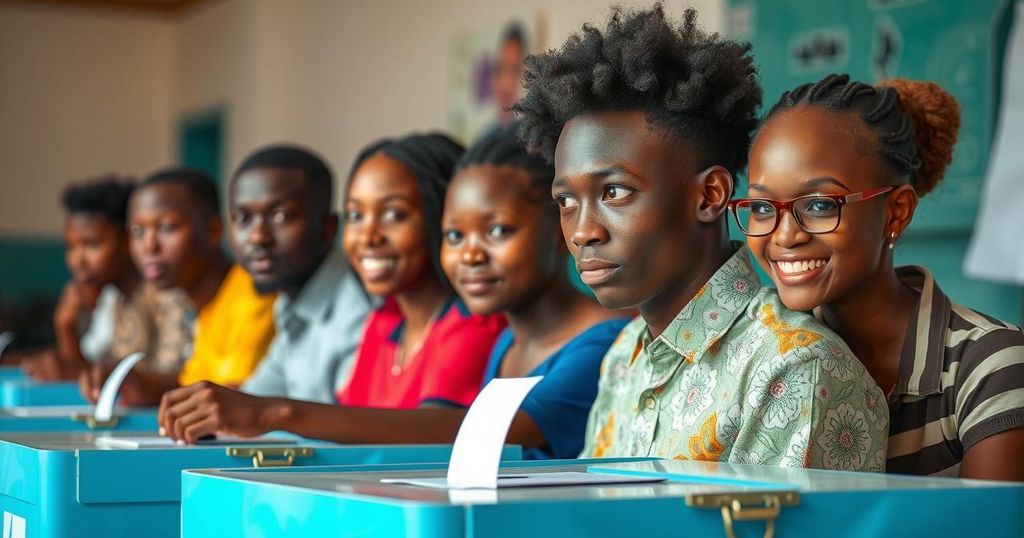Young Voters in Ghana Seek Change Amid Economic Struggles

Young Ghanaians view the presidential vote as a possible solution to their economic struggles, yet they face limited choices. The prominent candidates, Mahamudu Bawumia and John Mahama, each offer different plans to tackle the issues of unemployment and inflation. Concerns about election integrity and rising illegal gold mining add urgency to the electoral context. As the vote approaches, young voters’ hopes for meaningful change remain paramount.
As Ghana approaches its presidential election, young voters express their desire for change amidst economic turmoil. Joseph Antwi, among the first-time voters, articulates a prevalent sentiment: discontent with the outgoing administration’s failure to fulfill its promises. The contest is primarily focused between Vice President Mahamudu Bawumia of the ruling New Patriotic Party (NPP) and former President John Mahama of the National Democratic Congress (NDC), amidst claims of election commission biases and rising illegal gold mining issues threatening local environments. Candidates emphasize their commitment to addressing the economic hardships as crowds gather for final rallies, highlighting the urgent need for effective governance and economic relief.
Ghana has historically been viewed as a stable democracy in West Africa; however, the current context reveals significant challenges, particularly for the younger population. Economic conditions, marked by high inflation, public debt, and a depreciating local currency, have strained livelihoods. As the nation prepares for its presidential election, many first-time voters like Joseph Antwi are hopeful yet skeptical about the candidates’ promises. The election features twelve candidates, but the race is effectively dominated by Bawumia and Mahama, representing the incumbent and opposition parties, respectively, each advocating for distinct solutions to pressing economic issues. Amidst the vibrant electoral environment, claims of electoral malpractice add to the tension.
In conclusion, young Ghanaians regard their electoral participation as a potential escape from the pervasive economic hardships they face. Candidates are pressed to deliver tangible solutions, particularly around job creation and economic stability. The political atmosphere reflects optimism for change, yet it is marred by concerns over the integrity of the electoral process. As the polls draw near, the critical nature of this election will likely have lasting implications for the democratic fabric of Ghana and its youth’s future.
Original Source: apnews.com






